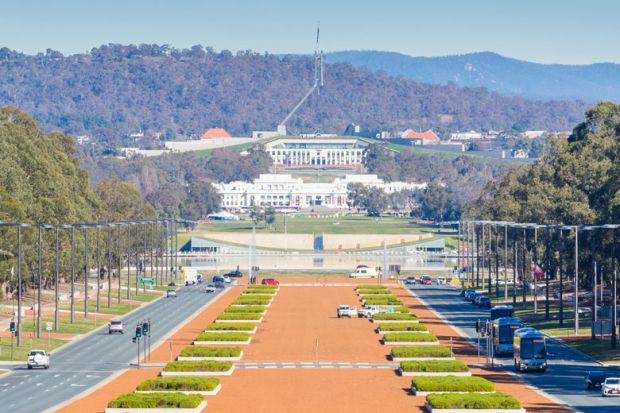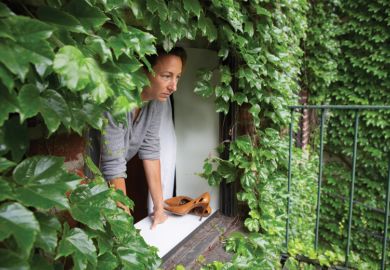Australia’s politicians will have to return to talks about fee deregulation “to deal with our public finance issue”, according to the Queensland University of Technology vice-chancellor.
Peter Coaldrake also warns in a newly revised edition of his 2013 book, Raising the Stakes: Gambling with the Future of Universities, that with the government still budgeting for major cuts despite plans for higher fees being thwarted, the Australian sector “remains highly vulnerable when reality finally hits”.
Professor Coaldrake, a former chair of Universities Australia, gave a lecture on “Deregulation and marketisation in English higher education – lessons from Australia” at the Policy Exchange thinktank during a recent visit to the UK.
If Australia were to combine its government-backed income-contingent loans system with uncapped fees, it would be a major development in world higher education.
But plans to do so by the previous Liberal-led government were blocked by Labor opposition. While the Liberals remain in the driving seat following this year’s federal election, they still lack the Senate majority that would be needed to push through fee deregulation.
Professor Coaldrake told Times Higher Education that there would be “difficulty getting any change through for a year or so, until such time as both sides in politics start to understand that we’ve actually got to deal with our public finance issue. The reason I’ve supported deregulation is because I thought it was the only game in town provided you could look after [poorer students].”
He added: “I don’t see much change for a little while, but I see a return to the table to have a discussion about this.”
In his book, co-authored with QUT principal policy adviser Lawrence Stedman, he writes that savings linked to the government’s 2014 deregulation plan “continued to be factored into government budgets despite ongoing rejection of the reforms by the Senate”.
While the savings were reduced “to around A$2 billion” in the 2015-16 budget, “the sector remains highly vulnerable when reality finally hits”.
Either “students will pay more or universities will take a cut, or a combination of the two will emerge”, he adds.
Since the federal election in July, the Group of Eight, which represents research-intensive universities, has called for the scrapping of the demand-driven system – warning that growing student numbers spell a potential risk to the financial sustainability of higher education.
But other vice-chancellors have called that stance “elitist”, “selfish” and even “crapulous”.
Professor Coaldrake said: “People say ‘cap the system and give the money to the research-intensive universities’…I’m not sure it’s as simple as that. I think the system is reasonably self-capping and that probably 40 per cent [participation by young people in higher education]...is going to be achieved without trying too much.
“And by the way, 40 per cent [participation] is not such a silly public policy goal. China is 40 per cent, Singapore is 40 per cent, America has one university for every 550,000 people, roughly the same as what we do. That’s not the issue; it’s how quickly poor people progress under [a] demand-driven [system] as opposed to others.”
QUT, based in Brisbane, will host the THE Young Universities Summit in April 2017.
Register to continue
Why register?
- Registration is free and only takes a moment
- Once registered, you can read 3 articles a month
- Sign up for our newsletter
Subscribe
Or subscribe for unlimited access to:
- Unlimited access to news, views, insights & reviews
- Digital editions
- Digital access to THE’s university and college rankings analysis
Already registered or a current subscriber?








